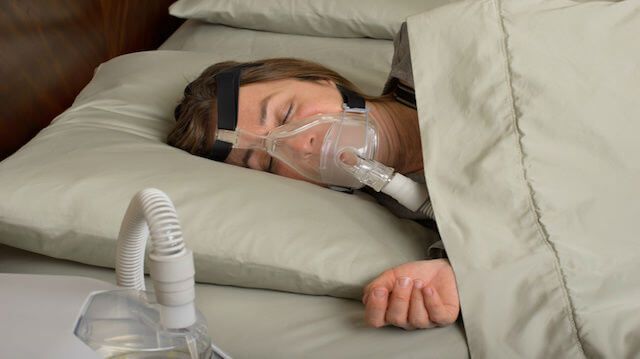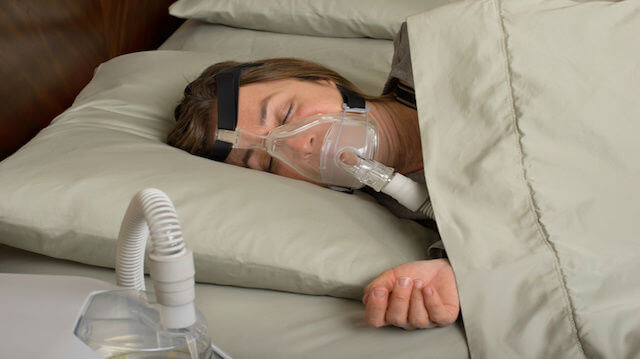
For some time, medical professionals have been aware of the fact that sleep apnea is more than a mere annoyance — there are real health risks associated with it. Now, new research out of the University of California, Los Angeles (UCLA) demonstrates that obstructive sleep apnea contributes to the breaking down of the blood-brain barrier, a filtering system of capillaries that delivers blood to the brain and spinal cord tissue and helps to prevent harmful bacteria and chemicals from reaching the brain.
Impaired blood-brain functioning has been linked to brain damage associated with stroke, epilepsy, meningitis, multiple sclerosis, Alzheimer’s disease, and more.
Obstructive sleep apnea is a condition that affects around 22 million American adults and is characterized by interruptions in breathing as a result of narrow or blocked airways.
According to Rajesh Kumar, the study’s principal investigator and associate professor of anesthesiology and radiological sciences at UCLA’s Geffen School of Medicine, “We found that the blood–brain barrier becomes more permeable in obstructive sleep apnea, a breakdown that could contribute to brain injury, as well as potentially enhancing or accelerating the damage.”
The type of brain damage associated with sleep apnea can impact mood, memory, and cardiovascular risk. It can also lead to depression, anxiety, diabetes, daytime sleepiness, reduced testosterone and endocrine-related problems.
The brain damage is likely a result of the reduction in oxygen in the body that is caused by the breathing interruptions. However, researchers and medical professionals do not fully understand the process by which the brain damage occurs. Although earlier studies indicated that the blood-brain barrier can be affected by oxygen deprivation and high blood pressure, this study is the first to link such damage to obstructive sleep apnea.
The study, which appears in the September 1 issue of the Journal of Neuroimaging, could lead the way in new treatments for sleep apnea. Currently, there are both pharmacological and nonpharmacological treatments for blood-brain barrier damage in other conditions.
 Using a magnetic resonance imaging procedure, the researchers were able to measure the breakdown and permeability of the blood-brain barrier. Nine people who were recently diagnosed with obstructive sleep apnea and had not yet been treated were compared to nine subjects who did not suffer sleep apnea and who served as the control group. The permeability of the blood-brain barrier was significantly higher in the individuals with obstructive sleep apnea.
Using a magnetic resonance imaging procedure, the researchers were able to measure the breakdown and permeability of the blood-brain barrier. Nine people who were recently diagnosed with obstructive sleep apnea and had not yet been treated were compared to nine subjects who did not suffer sleep apnea and who served as the control group. The permeability of the blood-brain barrier was significantly higher in the individuals with obstructive sleep apnea.
“This suggests that besides improving breathing in obstructive sleep apnea patients, we need to repair or improve blood–brain barrier function, perhaps by using treatments already available for other conditions,” said Kumar.
The researchers now plan to confirm their findings with a larger group of obstructive sleep apnea patients. In addition, they plan to determine whether methods of overcoming damage to the blood-brain barrier in patients who have experienced a stroke and other neurological conditions will also prove effective for minimizing brain injury in obstructive sleep apnea patients, as well as those suffering from other respiratory conditions.
Are you affected by sleep apnea? Stay connected to keep up to date on new treatments available to you!
—The Alternative Daily

